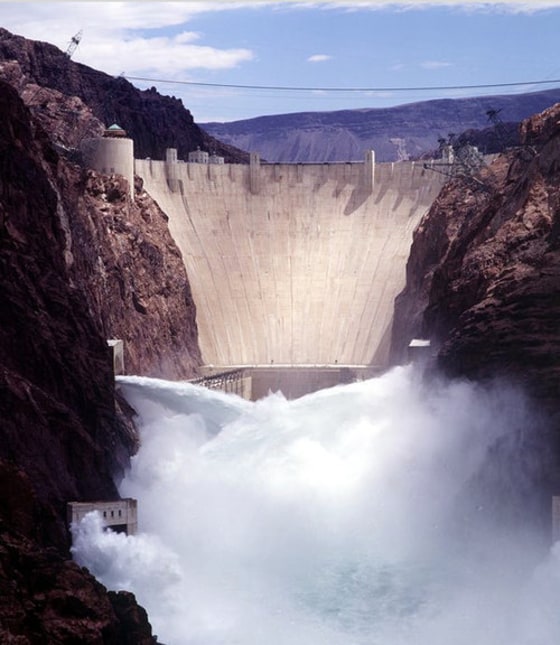While Egypt hit the "Internet Kill Switch" in an attempt to calm protesters, the United States has been discussing the need for such a mechanism for other reasons: Cybersecurity. After all, we need a way to keep hackers from getting into something like the Hoover Dam's electric control systems, opening it up, and killing thousands! Actually, hold the panic for a second! Is that even something hackers could do?
Short answer: No.
Long answer: No, because — as Peter Soeth, a spokesman for the Bureau of Reclamation, which runs the Hoover Dam explained to Wired — facilities like that are not only "protected by multiple layers of security," they're not even connected to the Internet.
Whoops. That's a bit awkward to discover after several legislative aides on the Homeland Security and Governmental Affairs committee tried to justify the Protecting Cyberspace as a National Asset Act — an act approving a limited "Internet Kill Switch" of sorts to be used to protect critical infrastructures — by citing the Hoover Dam doomsday scenario as an example of why the act is necessary.
Guess those aides must've read a 2001 article in USA Today which had idly pondered what would happen if there were cyberterrorism attacks involving hackers who “might send a worm to shut down the electric grid in Chicago and air-traffic-control operations in Atlanta, a logic bomb to open the floodgates of the Hoover Dam and a sniffer to gain access to the funds-transfer networks of the Federal Reserve.”
No matter what caused the confusion, there's reassurance that any panic caused by the legislative aides' odd choice of example was supposedly put to an end with a few phone calls to backers of the Protecting Cyberspace as a National Asset Act. As for the rest of us who didn't receive such a phone call, we can take off our tinfoil hats and breathe a bit easier now.
Rosa Golijan writes about tech here and there. She mostly pretty obsessed with Twitter, but you should like her on Facebook anyway.
